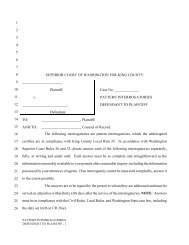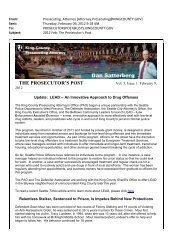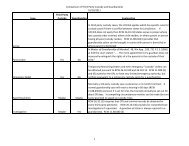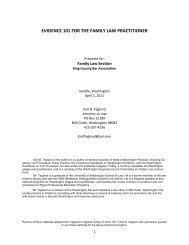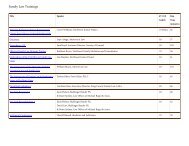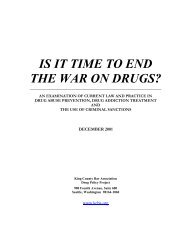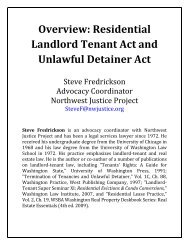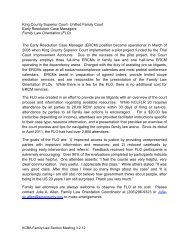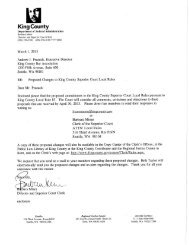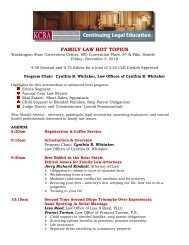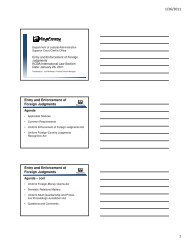Effective Drug Control: Toward A New Legal Framework
Effective Drug Control: Toward A New Legal Framework
Effective Drug Control: Toward A New Legal Framework
You also want an ePaper? Increase the reach of your titles
YUMPU automatically turns print PDFs into web optimized ePapers that Google loves.
Key Amendments to Federal <strong>Drug</strong> Law<br />
As a first step in the decentralization of national drug policy, certain amendments<br />
to federal law would help spur the “laboratories of democracy” among the states,<br />
allowing them to develop reforms more compatible with their local political climates.<br />
One simple amendment to Section 903 of the <strong>Control</strong>led Substances Act, the “positive<br />
conflict” clause, 561 would arguably be sufficient to restore the federal-state balance in<br />
drug policy, whereby preeminence would be given to state law instead of federal law<br />
whenever conflicts arose between the two. 562<br />
Another simple regulatory change – the removal of marijuana from the federal list<br />
of Schedule I (prohibited) substances – which could be promulgated by the U.S. Attorney<br />
General, would create enormous opportunities for state and local governments to realize<br />
significant cost savings in law enforcement, prosecution and incarceration, without<br />
necessarily compromising community health and safety. States and localities would be<br />
responsible not only for their respective policies toward marijuana control but also for<br />
their budgets for drug enforcement, which would force a “candid conversation” in the<br />
local political arena about the wisest use of scarce public resources and about the best<br />
means to protect public health and safety. 563<br />
Some perverse incentives have been created by federal dominance in drug policy,<br />
which have had the effect of boosting intensified law enforcement activity, prosecution<br />
and incarceration. The most notable policy incentives of this sort are drug-related asset<br />
forfeiture and mandatory minimum sentences, each of which would be ripe for reform in<br />
a more federalist drug policy environment. 564<br />
CURRENT OPTIONS AVAILABLE TO THE STATES<br />
Through enactment of the Uniform <strong>Control</strong>led Substances Act, Washington and<br />
the states have voluntarily integrated their drug control laws into the federal scheme.<br />
Could a state, therefore, voluntarily diverge from the federal scheme just as easily? Even<br />
without any amendment to the federal <strong>Control</strong>led Substances Act, could a state enact its<br />
own regulatory system for controlling those psychoactive substances that are currently<br />
produced and distributed exclusively in illegal markets? May the state of Washington<br />
establish its own system and structures for drug control in an attempt to find a more<br />
workable alternative to federal drug prohibition?<br />
Reassertion of Inherent Police Powers<br />
There is a strong argument that states’ exercise of police powers should be<br />
respected at the federal level, especially regarding a public health issue such as drug<br />
abuse. <strong>Drug</strong> problems vary significantly from state to state and between regions, which<br />
should allow state and local jurisdictions wider discretion to develop more creative policy<br />
responses. The power of states to control drugs exists independent of federal legislation;<br />
case law from Washington, in fact, affords the state the maximum permissible authority<br />
to fight the drug abuse problem, in view of the “dangerous nature and injurious effect of<br />
unregulated drug use.” 565



